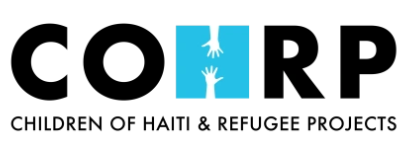Culturally Responsive Counseling in the International School
(Formerly - Counseling Across Cultures)
Online: 23 March - 18 May 2024
Synchronous Sessions: 7 - 9am ET - March 23, April 6, 20, May 4, 11, 18
Facilitator: Cheryl-Ann Weekes
Online: 22 March - 17 May 2025
Synchronous Sessions: 7 - 9am ET - March 22, April 5, 19, May 3, 17
Facilitator: TBA
Hear what participants have to say about the course: Kindall Tyson
International school counselors have a professional and ethical responsibility to continuously grow their awareness, knowledge and skills around cultural diversity, equity and inclusion to be effective practitioners. There is a growing body of research that demonstrates the impact that school counselor advocacy plays on contributing to equitable and inclusive schools. Whether you are a newly qualified or experienced international school counselor, you are well positioned to make a positive impact for the students in your care through the implementation of school counseling programs that promote self-awareness, knowledge of worldviews and cultural identities and through collaboration with colleagues to create a safe and welcoming school climate that embraces all learners.
Essential Questions
Who are the students in our care and how do we honor their diverse identities?
What role do diversity, equity and cultural background play in building relationships?
How can we address diversity, equity, inclusion and cultural competence explicitly in our counseling programs and in the curriculum?
How can we successfully navigate diversity and cultural differences when counseling students and families?
How can counselors contribute to and advocate for developing a safe, inclusive, welcoming environment for students that embraces diversity?
Learning Outcomes
Participants will understand that:
having an ever-growing knowledge of our student’s cultural background and identity is essential for providing effective counseling supports
their personal knowledge, attitudes and beliefs can either positively or negatively impact their work with diverse student populations
school experiences can be significantly more difficult for students with marginalized identities
You will know:
the stages of identity development
that diversity is a “range of cultures and subcultures that represent attitudes, beliefs, values, rituals, symbols, norms and conventions, customs, behaviors and ideologies” (Stone & Dahir, 2016, p. 294).
You will be able to:
advocate, consult and collaborate for adoption of school policies addressing discrimination and promoting violence-prevention programs to create a safe, inclusive and welcoming school climate
identify the impact of family culture on student performance in school
model inclusive language
create an environment that encourages any student or group to feel comfortable to come forward with problems
recognize the various mental health risks of marginalized and stigmatized identities.
Who is this experience for?
Current and aspiring counselors in international schools will benefit from the CTC courses. The mix of theory and practical, job-embedded practices will provide participants with a wealth of strategies to use in their role.
What’s my commitment?
This is an 8-week course with six synchronous sessions and job-embedded tasks and practices for participants to complete between sessions. Synchronous sessions include opportunities for both learning from an experienced international school counselor and small group discussions. You should be prepared to spend approximately 90 minutes to 2 hours per week, including individual and job-embedded tasks. This course can be used towards completion of your Certificate for International School Counseling.



